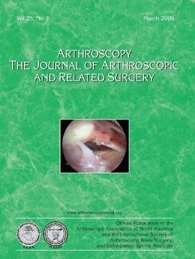
General Orthopaedics
Improved acute quadriceps muscle activation, similar long term outcomes with ACB vs. FNB in ACLR
Arthroscopy. 2019 Mar;35(3):921-929.86 patients scheduled for anterior cruciate ligament reconstruction were randomized to receive an adductor canal block (ACB) or a femoral nerve block (FNB). Outcomes of interest included pain scores, morphine consumption, quadriceps muscle activation deficit, straight leg raise test, ambulation status, International Knee Documentation Committee (IKDC) score, extension range of motion deficit, flexion range of motion deficit, single-leg squat deficit, knee extension peak torque, anterior knee pain, knee extension loss, deep vein thrombosis and re-injury. Follow up was performed at 24 hours, 2 weeks, 4 weeks and 6 months. The findings from this study found significantly favourable quadriceps muscle activation deficit at 24 hours and 2 weeks in the ACB group. Additionally, a significantly higher proportion of patients met "full ambulation status" criteria at 4 weeks and a significantly lower proportion of patients had knee extension deficit at 6 months in the ACB group. Otherwise, there were no significant differences between groups.
Unlock the full article
Get unlimited access to OrthoEvidence with a free trial
Start TrialCritical appraisals of the latest, high-impact randomized controlled trials and systematic reviews in orthopaedics
Access to OrthoEvidence podcast content, including collaborations with the Journal of Bone and Joint Surgery, interviews with internationally recognized surgeons, and roundtable discussions on orthopaedic news and topics
Subscription to The Pulse, a twice-weekly evidence-based newsletter designed to help you make better clinical decisions
Exclusive access to original content articles, including in-house systematic reviews, and articles on health research methods and hot orthopaedic topics
Or continue reading this full article
Register Now

Subscribe to "The Pulse"
Evidence-Based Orthopaedics direct to your inbox.




































